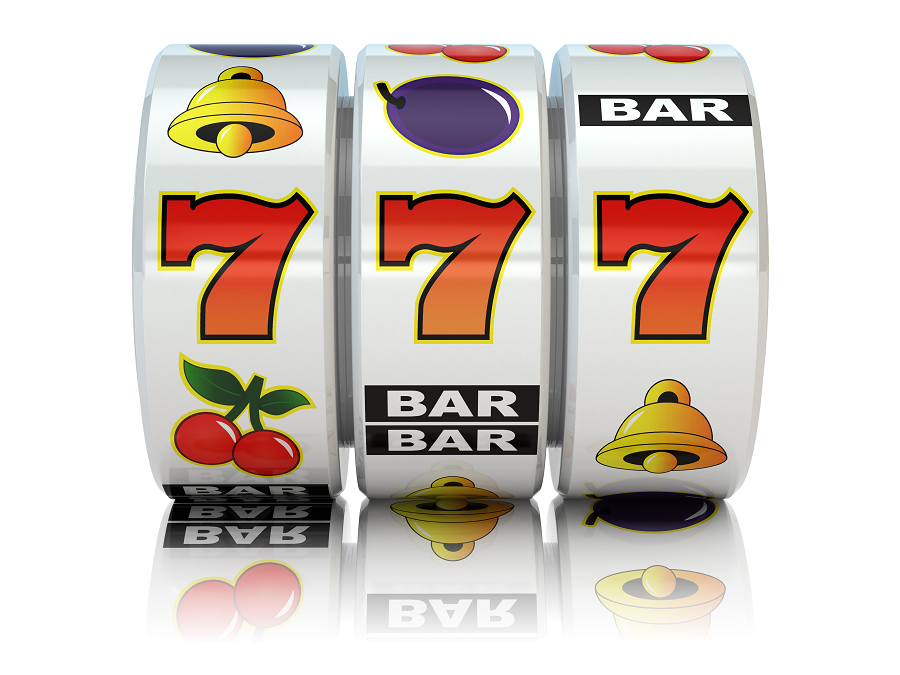Slot machines are among the most popular and exciting casino games, allowing players to win big with just the pull of a lever or the push of a button. The simplicity of the gameplay, combined with the alluring lights and sounds, has made slots a favourite pastime for millions of people worldwide. Despite their seemingly random nature, many players have devised strategies to try and beat the slots, with varying levels of success. In this article, we will explore the world of slot machines, their inner workings, and the various strategies people have employed to conquer the one-armed bandits.

The Inner Workings of Slot Machines
To understand the strategies people use, it is crucial to know how slot machines work. Modern physical and online slot machines use complex algorithms called pseudo-random number generators (PRNGs) to determine the outcome of each spin. While not truly random, these algorithms produce sequences of numbers that are virtually indistinguishable from true randomness. PRNGs rely on a seed value, which generates the sequence of numbers that dictate the game’s outcome when combined with the algorithm.
One popular PRNG is the Linear Congruential Generator (LCG). Here’s a simple implementation of an LCG in Python:
| class LCG: def init(self, seed, a=1664525, c=1013904223, m=2**32): self.state = seed self.a = a self.c = c self.m = m def next(self): self.state = (self.a * self.state + self.c) % self.m return self.state def random(self): return self.next() / self.m #Usage example seed = 42 prng = LCG(seed) #Generate 10 pseudo-random numbers for _ in range(10): print(prng.random()) |
This LCG implementation uses default values for the multiplier a, the increment c, and the modulus m (the same as those used in the C library function rand()). You can change these values to others if you like, as long as they satisfy the properties required for an LCG.
The next() method generates the next number in the sequence, and the random() method normalizes it to the range [0, 1). To use this PRNG, simply create an LCG instance with a seed value and call the random() method to generate pseudo-random numbers.
Strategies Used to Beat the Slots
Over the years, players have devised numerous strategies to try and predict the outcomes of slot machines or increase their odds of winning. Some of these strategies include:
- Money Management: Many players employ strict money management techniques to maximize their playing time and minimize losses. It can involve setting a budget, using a loss limit, or hiring a stop-win strategy to walk away once a certain profit threshold is reached.
- Bet Size and Paylines: Some players adjust their bet sizes and the number of active pay lines to optimize their chances of hitting a winning combination. It could involve betting smaller amounts on more pay lines or more significant amounts on fewer paylines.
- Choosing High RTP Machines: Return to Player (RTP) measures how much a slot machine pays back to players over the long run. By targeting machines with higher RTP percentages, players hope to increase their odds of winning.
- Utilizing Casino Bonuses and Promotions: Casino bonuses and promotions, such as free spins, match bonuses, or cashback offers, can give players additional chances to win without risking their own money.
- Exploiting Weak PRNGs: In rare cases, skilled individuals have exploited weaknesses in PRNG algorithms to predict outcomes and win large sums of money. However, these cases are exceptional and often result in legal consequences.
While there are various strategies that players have tried in an attempt to beat the slots, the truth is that slot machines are designed to be unpredictable and challenging to outsmart. While some strategies may increase the entertainment value or prolong playing time, the outcomes of slot machines are primarily determined by chance and the algorithms that govern them. As a result, the best approach to enjoying slots is to play responsibly, manage your bankroll wisely, and remember that the primary goal is to have fun.

Pseudo-random number generators (PRNGs) are used in slot machines to ensure fairness and unpredictability in in-game outcomes. PRNGs are algorithms that produce seemingly random numbers but are deterministic, meaning that they rely on an initial value, or seed, to generate the sequence of numbers. As such, they are not truly random.
In theory, if one could figure out the exact PRNG algorithm used in a slot machine and the seed value, predicting the outcomes and increasing the chances of winning would be possible. However, this is extremely difficult in practice for several reasons:
- Modern slot machines and online casinos use complex PRNG algorithms designed to be hard to predict or reverse-engineer. These algorithms often have a significant period (the length of the sequence before it starts repeating) and exhibit good statistical properties that make them appear random.
- The seed values are usually generated from various sources, such as hardware random number generators, timestamps, or user input, making it challenging to obtain the initial value.
- In many jurisdictions, gaming regulators require that slot machines undergo rigorous testing to ensure the fairness and unpredictability of their PRNGs. Any attempt to tamper with or predict the outcomes of a slot machine would likely be detected and could result in legal consequences.
There have been a few cases in the past where people have managed to exploit weaknesses in PRNGs used by slot machines. One notable example is the case of Alex, a Russian mathematician who, with his team, reverse-engineered PRNGs in some slot machines and used their knowledge to predict outcomes and win money. However, these cases are rare, and casinos and gaming regulators have since addressed these issues by updating their PRNG algorithms and security measures.
Reverse-engineering the PRNG algorithm

In summary, while it may be theoretically possible to decode a PRNG and predict wins in slot machines, doing so would be extremely difficult, time-consuming, and potentially illegal. The story of Alex, a pseudonym used by the Russian mathematician and hacker, came to light in the mid-2010s. Alex and his team, based in St. Petersburg, Russia, exploited weaknesses in specific pseudo-random number generators (PRNGs) used by slot machines, enabling them to predict the outcomes and win substantial amounts of money.
Their method involved the following steps:
- Reverse-engineering the PRNG algorithm: Alex and his team would purchase a specific slot machine model (usually from a company like Aristocrat, a leading slot machine manufacturer) and then analyze its software to understand and reverse-engineer the PRNG algorithm used.
- Identifying weaknesses: By studying the algorithm, they could find weaknesses that would allow them to predict the PRNG’s output accurately.
- Data collection: Alex’s agents would visit casinos, play the targeted slot machines, and record the outcomes using their smartphones. This data would then be returned to Alex, who would analyze the results and determine the PRNG’s seed value.
- Calculating outcomes: Alex and his team could predict future developments for the targeted slot machines once they had the seed value. They would then send this information back to their agents in the field, who would know when to place bets and win large sums of money.
This operation was highly successful, and Alex’s team reportedly earned millions of dollars from exploiting slot machines in various countries, including the United States. However, their activities eventually attracted the attention of casino operators, gaming regulators, and law enforcement agencies.
In 2017, the story of Alex and his team was covered in depth by Wired, a popular technology and science magazine. Since then, casinos and slot machine manufacturers have improved their PRNG algorithms and security protocols to prevent similar attacks.




While the full extent of Alex’s operations remains unclear, it is an example of how a skilled group could exploit weaknesses in PRNG algorithms to predict outcomes and cheat at slot machines. However, such cases are rare, and the gaming industry has since tried to address these vulnerabilities.
Сonclusion
In conclusion, playing slots can be an exhilarating and entertaining experience, offering players the thrill of potentially winning big with each spin. While it’s natural to desire a winning strategy, it’s essential to understand that the outcomes of slot machines are primarily governed by chance and complex algorithms. While employing specific techniques may enhance your playing experience, there is no foolproof way to win at slots consistently. Embrace the inherent unpredictability of these games and enjoy them as entertainment. By managing your bankroll wisely, setting realistic expectations, and savouring the excitement of each spin, you can fully appreciate the captivating world of slot machines and the tantalizing possibility of hitting the jackpot.








